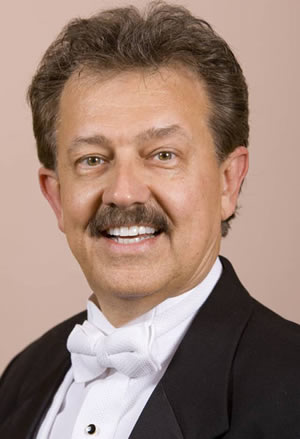The Raleigh Boychoir is well known for the world-class choral education it provides for its singers. With this year’s annual American Music Festival, the RBC outdid itself by bringing esteemed conductor Dr. Henry Leck to direct the American Music Festival Choir. Not only is Leck a renowned conductor and professor of choral music, but he also specializes in children’s choir techniques and the changing male voice. The American Music Festival concert was a culmination of two days of workshops and rehearsals with Leck and the RBC’s artistic director, Jeremy Tucker. Although these rehearsals were not open to the public, the boys’ hard work and dedication was clear through the performances they gave.
The concert began with a set from the Raleigh Boychoir’s Performing Choir, conducted by Tucker. Jay Althouse‘s “Gloria Deo” showcased open vowels and crisp consonants with the Latin text, contrasting with “Sim Shalom,” a lullaby-like Hebrew piece highlighted by local violinist Sara Talley. The Performing Choir’s Hebrew diction was notable, especially on a program that featured many languages other than English. The RBC’s Young Men’s Ensemble, an ensemble of seven changed voices, sang “Canst Thou Love Me, Lady.” Gentle and exposed, this song showed the singers’ ability to blend with one another. The combined “Wade in the Water” was a highlight of the concert with expressive crescendos and sudden dynamic changes.
The “American Music Festival” Choir consisted of the Performing Choir plus select singers from Wake County’s elementary schools. According to Leck, the primary purpose of music is to connect, and this collaborative concert did just that. “Ciranda da Lua,” a Brazilian samba-inspired piece with Portuguese text, was one of the most interesting pieces of the program; a moody, dark opening suddenly breaks into a faster, joyful samba, before returning to the texture of the opening. It was here where the young singers onstage seemed to come out of their shells and engage physically with the song, which made the music even more enjoyable. “Join the Song!” was great technique-wise, but was made even better by the appearance of having fun onstage.
For the penultimate number, members of Kidznotes‘ new choral program were invited onstage to sing the lighthearted “Ac-cent-tchu-ate the Positive” – definitely an audience favorite (which could have something to do with the fact that a Kidznotes singer conducted this piece adorably). The concert concluded with Rudolph de Beer’s arrangement of the South African Apartheid anthem, “Amavolovolo.” This uplifting, rhythmic, and catchy piece was enhanced with movements taken from the Drakensberg Boy’s Choir performance of “Amavolovolo.” At the end, Leck praised the festival’s singers, saying that they were “cooperative and hardworking,” and reminded the audience that this festival’s goal was more about the “process than the product.” However, the product turned out to be pretty fantastic, too.











